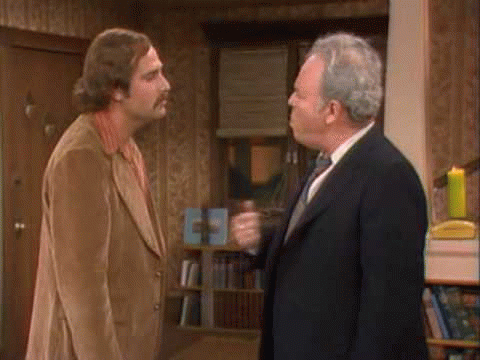I'm not looking forward to Thanksgiving. Oh, it's not that I don't like turkey and won't eat my share. It's just that, like most of you, I've got this Fox News brother-in-law, and he gives me indigestion. I see Harry once a year, and for the past six Thanksgivings it's always the same: complaints about Obama. You know the drill; just read Rush Limbaugh's current talking points. They're all sure to surface at Thanksgiving dinner.
This year, no doubt, we'll end up arguing about immigrants, immigration reform, and the imperial presidency. My brother-in-law will complain about "illegals" (that's what he'll call undocumented workers), the law, amnesty, border security, and Obama's failure to reach across the aisle to well-meaning and otherwise cooperative Republicans.
But most of all, my dear relative will complain about the disruptive effects of "the brown peril" -- waves of immigrants pouring over our borders and disrupting our economy. "I mean," he'll say, "if we keep giving amnesty to 'those people,' they'll disrupt everything. You just can't let everybody into the country without rules. 'Freedom' like that is simply anarchy. And anarchy is destructive. They'll eventually take all the good jobs."
Well, here's what I plan on telling old Harry this year:
"You see, Harry, we're finally getting a taste of the disruption economies like Mexico have experienced since 1994 and the passage of the North American Free Trade Agreement (NAFTA). It was then that in the name of "free trade" tsunami waves of capital investment were unleashed across the Mexican border. To Mexican farmers it was an onslaught of "white peril" that dwarfs any threat you and I might experience from brown people.
"For instance, cheap American corn (actually subsidized in the NAFTA agreement) drove Mexican farmers out of business. True, a relatively few of them got employment in maquiladoras (assembly plants). But many of those factories soon closed when it became possible to hire lower wage workers in China and Vietnam. And in any case, working in the maquilas meant moving from the countryside to polluted and dangerous cities. It also meant accepting wages of $1.50 a day with no bathroom breaks. Conditions like those inevitably cause desperate workers to relocate to where the money is -- to where the jobs are. And that's the United States.
"Remember, Harry, there are two main components of the economic equation -- not just capital. Labor is just as important. So any "free trade agreement" that allows capital to move without regulation should allow the same liberty to labor. Instead, the NAFTA insisted on free movement of capital alongside a captive labor force.
"Workers implicitly recognize the injustice of all that even if they can't say the words. So despite 'state law' forbidding it, the labor force will obey the dictates of capitalism's Sacred Law of supply and demand -- of self-interest. Like capital, labor will migrate to where the money is. And you can't really stop it. That's capitalism.
"So here's the way to stem the brown peril:
- Renegotiate the NAFTA recognizing labor's freedom of movement as well as capital's.
- That will mean electing governments on all sides of "free trade agreements" that truly represent working people and not just the corporations.
- Make sure that ALL stake-holders are represented at the negotiating table -- including male and female workers, children, environmentalists, and trade unionists.
- Make sure the final product protects the environment and addresses climate change.
- See that the newly elected people's governments establish a living NAFTA wage of $15.00 an hour -- indexed to inflation rates.
"Without such provisions, Harry, I'm afraid workers will look abroad to better their condition. They'll continue (like their capitalist counterparts) to act in their own self-interest relocating quite naturally to where the money is. Really, we can't do anything about it.
Like I say, that's capitalism."






